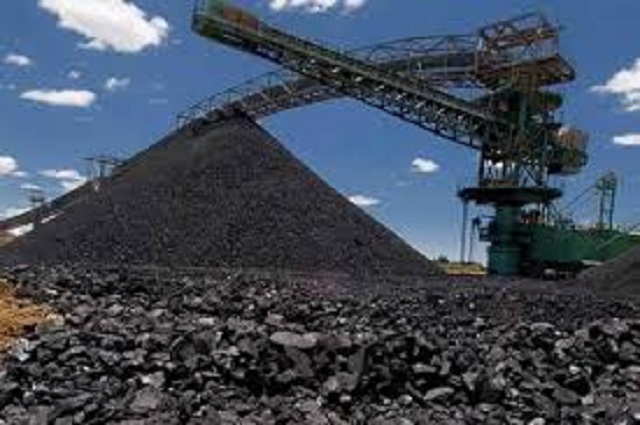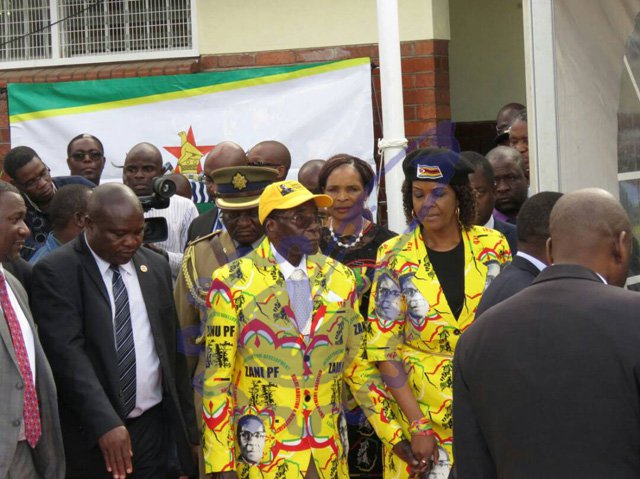Editorial Comment: Efforts to revive HCC, improve supplies laudable

TWO remarkable things happened in Hwange Town this week that cannot go unnoticed and deserve to be commended. The Hwange community has all reasons to smile as their largest employer Hwange Colliery Company Limited (HCCL) has started giving its workers part of their outstanding salaries as part of the implementation of a Scheme of Arrangement that was recently approved by the company’s creditors. The arrangement offers the ailing company a window to revamp its operations without threats of litigation from its creditors.
Secondly, the Government on Wednesday handed over new power generation equipment worth $12 million to Hwange Power Station, the largest thermal power plant in the country. Despite having 920MW installed capacity, the output at Hwange Thermal has over the years dropped to about 500MW and below due to constant equipment breakdown and low coal supplies among other challenges.
We cannot underestimate the synergy between Hwange Colliery Company and Hwange Thermal Power Station whose viability and efficient operations are interdependent. The power station depends on the colliery for coal supply and the former is a big customer for the colliery. The two entities are the biggest economic actors and employers in Hwange District whose operations impact greatly on the overall Matabeleland North province and the country at large.
We are encouraged by the fact that the Scheme of Arrangement deal seems to be paying dividends for the strategic company judging by reports of improved output from the record lowest of 36 000 tonnes early this year to 170 000 tonnes this month. The ability to pay salaries since last December, as indicated by managing director Engineer Thomas Makore, is a milestone achievement for a company that has been in the red for the past few years.
Many had feared Hwange Colliery, which is saddled with a $300 million debt, would slip into the inevitable dead end as disgruntled creditors were left with no option but to litigate and perhaps force liquidation.
We hope the positive gains shown this month will be maintained and also urge management to continue working closely with workers and its stakeholders to ensure that Hwange Colliery does not die but is restored to its former glory. As we report today, Hwange Town has burst into life with consumer spending rising in service sectors as a result of a once off payment of outstanding pay at an average of $800 per worker, which is seven percent of what employees are owed.
This shows the impact of Hwange in the community and its significance to the survival of other businesses downstream. This has an effect of boosting business morale and attracting investment to Hwange.
We expect the improvement in coal output to impact positively on power generation capacity and reverse coal supply shortages that have dogged the Zimbabwe Power Station.
The equipment consignment, which was handed over by Energy and Power Development Minister, Dr Samuel Undenge, includes compactors, hydraulic excavators, articulated water and pipe trucks and will be used to rehabilitate the waste collection site.
The Ash handling plant has newly fitted equipment that sucks out waste from turbines including ash and water. These are then pumped to a disposal collection point about 5km away from the power station and is meant to prevent overspill of environmentally hazardous chemicals besides improving the performance of power generators.
We also applaud the Zimbabwe Multi-donor Trust Fund (ZimFund) through, which the $12 million was secured to procure the new equipment. This shows the benefits of public private sector partnerships (PPPs), which are a crucial strategy in developing sound infrastructure to support economic growth. We concur with Dr Undenge that the rehabilitation of power infrastructure should be a national priority since energy is key for economic recovery.
“The project is meant to help improve the reliability of electricity supply to various urban water treatment plants and sewage plants. The capacity to move ash from the boilers to the disposal dams was restricted leading to ash build up hence curtailing generation,” said Dr Undenge.
We also urge the Government to speed up rehabilitation of small thermals in Bulawayo, Harare and Munyati so as to ensure the country has enough energy and stops power imports.










Comments